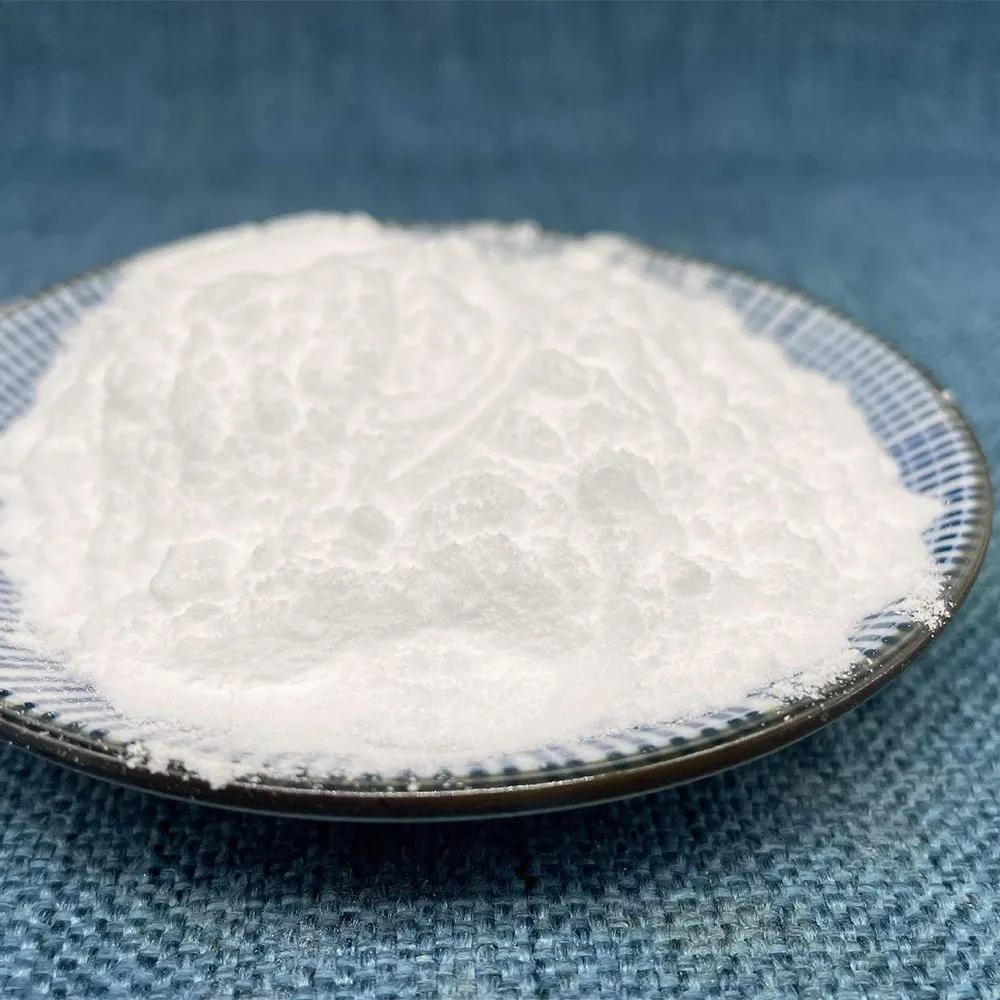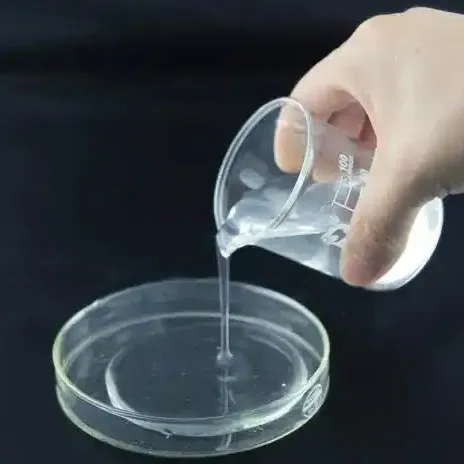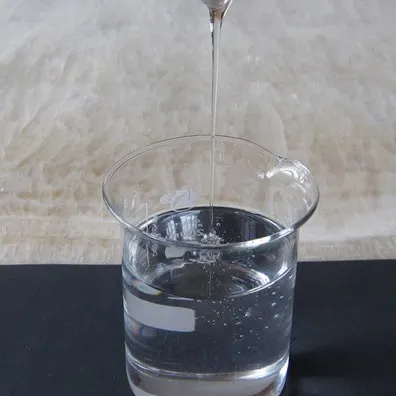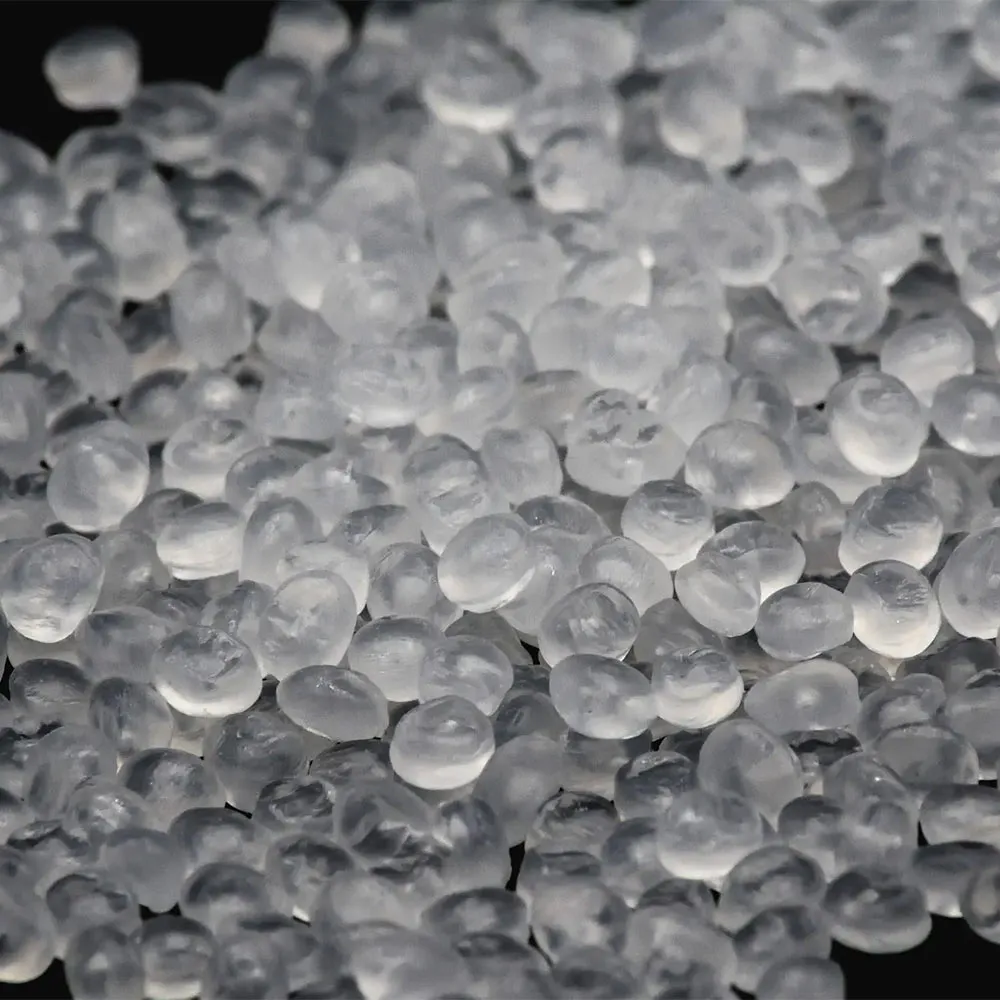
Premium Ethyl Cellulose | High Purity Polymer for Coatings & Binders
Introduction to Ethyl Cellulose in Advanced Industrial Applications
In the intricate landscape of specialty polymers, Ethyl Cellulose stands out as a versatile, non-ionic cellulose ether with an exceptional combination of properties. This robust polymer is derived from cellulose through a precise ethylation process, resulting in a product highly valued for its film-forming capabilities, thermoplasticity, excellent water resistance, and compatibility with a broad spectrum of resins and plasticizers. Its unique chemical structure enables it to perform effectively across diverse industrial sectors, serving as a critical component in applications ranging from pharmaceutical coatings and controlled-release matrices to advanced electronic materials and high-performance inks.
Our exploration delves into the technical intricacies, strategic advantages, and burgeoning market trends surrounding this indispensable material. We aim to provide B2B decision-makers and technical engineers with a comprehensive understanding of its manufacturing excellence, application potential, and the inherent value it brings to product development and process optimization. The focus will be on delivering a data-driven perspective, leveraging industry best practices, and highlighting real-world impact to underscore the material's significance in today's demanding industrial environment.
Industry Trends and Market Dynamics for Ethyl Cellulose
The market for Ethyl Cellulose is experiencing dynamic growth, driven by escalating demand in key sectors such as pharmaceuticals, food & beverages, paints & coatings, and electronics. The pharmaceutical industry, in particular, relies heavily on Ethyl Cellulose for its role in controlled-release drug formulations, enteric coatings, and taste-masking applications, where its stability and biocompatibility are paramount. With an aging global population and increasing focus on advanced drug delivery systems, the demand for high-purity, consistent-grade Ethyl Cellulose is projected to expand significantly.
Beyond healthcare, the material's properties make it an ideal candidate for environmentally friendly coating solutions and specialized inks. As industries pivot towards sustainable practices, the non-toxic and biodegradable nature of cellulose derivatives like Ethyl Cellulose provides a competitive edge. Emerging trends also point towards increased adoption in 3D printing binders, advanced ceramic manufacturing, and even in specific applications within the electric vehicle (EV) battery sector for separator coatings, leveraging its thermal stability and electrical insulation properties. Manufacturers are continually innovating to develop new grades with tailored viscosity ranges, particle sizes, and degrees of substitution to meet the evolving demands of these sophisticated applications. The global market size for cellulose ethers, encompassing Ethyl Cellulose, was valued at over $5.5 billion in 2022 and is projected to reach approximately $9 billion by 2030, with a CAGR exceeding 6%.

Figure 1: Advanced Manufacturing Facility for Ethyl Cellulose Production.
Manufacturing Process Flow of Ethyl Cellulose
The production of Ethyl Cellulose is a sophisticated chemical process that meticulously transforms cellulose, typically derived from wood pulp or cotton linters, into a highly functional polymer. The integrity of the final product hinges on precise control over each stage, ensuring a consistent degree of substitution (DS) and viscosity profile crucial for its diverse applications.
Detailed Process Steps:
- 1. Cellulose Preparation: High-purity cellulose pulp is initially shredded and milled into fine particles to increase its surface area, facilitating subsequent chemical reactions. This mechanical process ensures uniform accessibility for reagents.
- 2. Alkalization: The prepared cellulose is then steeped in a concentrated solution of sodium hydroxide (NaOH). This process, known as mercerization or alkalization, converts cellulose into alkali cellulose. The alkali serves to swell the cellulose fibers, making the hydroxyl groups more reactive for etherification.
- 3. Etherification (Ethylation): The alkali cellulose is reacted with an ethylating agent, typically ethyl chloride (CH₃CH₂Cl), under controlled temperature and pressure conditions within a sealed reactor. This is the core step where ethyl groups substitute the hydroxyl groups on the anhydroglucose units of the cellulose backbone. The degree of substitution (DS), representing the average number of hydroxyl groups replaced by ethyl groups per anhydroglucose unit (theoretically 0-3), is critically controlled at this stage, commonly targeting a DS between 2.2 and 2.6 for commercial grades.
- 4. Neutralization and Washing: After etherification, the reaction mixture is neutralized with an acid to remove residual alkali and excess ethyl chloride. The crude Ethyl Cellulose is then subjected to extensive washing with hot water to remove inorganic salts (primarily NaCl) and unreacted byproducts, ensuring a high-purity product. This step is critical for achieving low ash content.
- 5. Drying and Grinding: The purified Ethyl Cellulose is dewatered and then dried to a specified moisture content. Finally, it is ground into various particle sizes (e.g., fine powder, granular) according to application requirements. Stringent quality control measures, including sieving and particle size distribution analysis, are employed.
- 6. Quality Control & Packaging: The final product undergoes comprehensive testing for viscosity, degree of substitution, purity, moisture content, and heavy metals, adhering to international standards such as USP, EP, and FDA guidelines where applicable. Only products meeting these rigorous specifications are packaged for distribution.
This meticulous manufacturing process ensures that the resulting Ethyl Cellulose exhibits predictable performance characteristics. Our products undergo rigorous testing, often exceeding ISO 9001 quality management standards, to ensure superior purity, consistency, and a service life optimized for demanding industrial environments. Target industries benefiting from our high-grade Ethyl Cellulose include pharmaceuticals, food processing, electronics, specialty chemicals, and advanced material manufacturing.

Figure 2: Illustrative schematic of Ethyl Cellulose synthesis.
Technical Specifications and Product Parameters
The performance of Ethyl Cellulose in any application is directly correlated to its precise technical specifications. Key parameters such as viscosity, degree of substitution (DS), and particle size are meticulously controlled during manufacturing to ensure optimal functionality. Viscosity, typically measured in a 5% toluene/ethanol solution (80/20 w/w) at 25°C, determines the polymer's solution rheology and film-forming characteristics. The DS value dictates solubility, thermoplasticity, and moisture barrier properties.
Our range of Ethyl Cellulose products adheres to stringent quality controls, meeting or exceeding global pharmacopoeia standards (e.g., USP, EP) and food-grade requirements (e.g., FDA GRAS). This commitment to quality ensures reliability and performance in critical applications.
Typical Product Specifications (Example Grade: EC-100)
| Parameter | Specification | Test Method/Standard |
|---|---|---|
| Viscosity (5% in Toluene/Ethanol 80/20, 25°C) | 90-110 mPa.s | USP / ASTM D914 |
| Ethoxyl Content (Degree of Substitution) | 48.0% - 49.5% (DS ≈ 2.45-2.55) | USP / EP |
| Loss on Drying | ≤ 3.0% | USP / EP |
| Ash Content (Sulfate) | ≤ 0.5% | USP / EP |
| pH (1% aqueous suspension) | 5.0 - 7.5 | Internal Method |
| Particle Size (>100 mesh) | ≥ 99% | Sieve Analysis |
| Heavy Metals (as Pb) | ≤ 10 ppm | ICP-MS |
Note: Specifications may vary by grade and application. Custom grades are available upon request.

Figure 3: Quality assurance and technical data validation for Ethyl Cellulose.
Application Scenarios and Industry Impact
The versatility of Ethyl Cellulose enables its deployment across a multitude of high-value industrial applications, where its unique blend of properties provides distinct advantages.
Key Application Areas:
- Pharmaceuticals: As a primary excipient in solid oral dosage forms, Ethyl Cellulose is indispensable for controlled-release drug delivery. Its film-forming ability creates robust, pH-independent coatings that regulate drug dissolution rates, ensuring sustained therapeutic effects and improved patient compliance. It's also used for taste-masking bitter APIs and as a binder in tablet formulations. We've supported clients in developing extended-release formulations that meet USP dissolution profiles, resulting in reduced dosing frequency for patients.
- Paints, Coatings, and Inks: Ethyl Cellulose acts as a rheology modifier, binder, and protective film-former. In solvent-based paints and varnishes, it imparts excellent film strength, water resistance, and adhesion. For printing inks, it enhances pigment dispersion, provides gloss, and improves printability. Its application in gravure and flexographic inks, especially for food packaging, highlights its low toxicity and superior film properties.
- Electronics: In the electronics industry, Ethyl Cellulose is utilized as a binder in thick film pastes for resistors, capacitors, and conductive inks. Its excellent thermal stability, dielectric properties, and clean burn-out characteristics during firing processes make it a preferred choice for precision electronic components, minimizing residue and maximizing performance.
- Food and Beverage: Certified food-grade Ethyl Cellulose serves as a binder, film-former, and protective coating for various food products. It can extend shelf life, prevent moisture absorption, and encapsulate flavors. It is also used in confectionery glazes and chewing gum bases.
- Adhesives and Binders: Its thermoplastic nature and compatibility with a wide range of polymers make it an excellent choice for hot-melt adhesives, pressure-sensitive adhesives, and general-purpose binders, offering strong bonding and flexibility.
Across these diverse sectors, the consistent quality and tailored grades of our Ethyl Cellulose contribute significantly to product innovation, operational efficiency, and enhanced end-product performance. Our long-standing relationships with leading global manufacturers underscore our commitment to delivering superior cellulose ether solutions that drive tangible value.
Technical Advantages and Performance Benefits
The selection of Ethyl Cellulose over other polymers is often dictated by its unique profile of technical advantages, making it an indispensable material for high-performance applications.
Key Advantages:
- Exceptional Water Resistance: Unlike water-soluble cellulose ethers, Ethyl Cellulose forms robust, water-insoluble films. This property is crucial for protective coatings, moisture barriers, and controlled-release formulations where water ingress needs to be precisely managed.
- Superior Film-Forming Properties: It produces tough, flexible, and transparent films with excellent adhesion to various substrates. These films exhibit good mechanical strength and abrasion resistance, vital for durable coatings and encapsulations.
- Thermoplasticity: As a thermoplastic polymer, Ethyl Cellulose can be hot-melt processed, offering advantages in extrusion coating, hot-melt adhesives, and other thermal processing techniques without significant degradation. Its glass transition temperature (Tg) typically ranges from 125-135°C, providing stability across broad operational temperatures.
- Chemical Inertness and Stability: It exhibits good chemical resistance to alkalis, dilute acids, and various organic solvents, ensuring stability in aggressive environments. It also has excellent thermal stability, allowing it to withstand processing at elevated temperatures without decomposing.
- Biocompatibility and Low Toxicity: Pharmaceutical and food-grade Ethyl Cellulose are widely accepted for their safety profile, making them suitable for direct contact with human products. It is generally recognized as safe (GRAS) by the FDA for direct food additive use.
- Compatibility: It demonstrates excellent compatibility with a wide range of plasticizers, resins, waxes, and oils, allowing for significant formulation flexibility and tailored performance characteristics. This broad compatibility aids in achieving specific film properties, such as flexibility or hardness.
- Electrical Insulation: Its low dielectric constant and good electrical resistance make it valuable in electronic applications for dielectric layers and insulation.
These inherent characteristics position Ethyl Cellulose as a superior choice for applications demanding high performance, durability, and safety. Our products consistently deliver these advantages, contributing to the energy saving and corrosion resistance properties often sought in industrial coatings, and the precise dosage control required in pharmaceuticals.
Vendor Comparison and Strategic Sourcing
Selecting the right supplier for Ethyl Cellulose is a critical strategic decision that impacts product quality, supply chain reliability, and ultimately, market competitiveness. While various manufacturers produce cellulose ethers, not all offer the same level of consistency, technical support, or adherence to stringent regulatory standards.
A key differentiator in vendor comparison extends beyond mere price per kilogram. It encompasses product purity, consistency of specific parameters (e.g., viscosity, DS), regulatory compliance, lead times, and the depth of technical expertise offered. Below is a comparative overview highlighting critical factors for consideration:
Key Vendor Comparison Factors for Ethyl Cellulose
| Factor | Leading Supplier (e.g., Tangzhi HPMC) | Standard Supplier |
|---|---|---|
| Product Purity & Consistency | High (Meets USP/EP/FCC, low ash/heavy metals, tight viscosity control) | Moderate (May have wider spec ranges, variable impurities) |
| Regulatory Compliance | ISO 9001, GMP, HACCP, FDA GRAS (where applicable) | Basic industry standards, limited certifications |
| Technical Support & Expertise | Extensive R&D, application specialists, formulation guidance | Basic product data sheets, limited troubleshooting |
| Customization Capabilities | High (Tailored DS, viscosity, particle size for specific needs) | Limited to standard grades |
| Supply Chain Reliability | Robust global network, inventory management, contingency plans | Potentially vulnerable to disruptions, less flexible |
| Post-Sales Support | Dedicated account management, warranty, prompt issue resolution | Transactional, limited follow-up |
Tangzhi HPMC, with years of specialized experience in cellulose ethers, distinguishes itself through consistent quality, comprehensive technical support, and a commitment to meeting diverse customer needs. Our certifications (e.g., ISO 9001) and long-term partnerships with clients across pharmaceutical, electronics, and coatings industries attest to our authoritative position in the market. We understand that for mission-critical applications, reliability and precision are non-negotiable.
Customized Solutions for Ethyl Cellulose
While standard grades of Ethyl Cellulose cater to a broad range of applications, many advanced industrial processes require highly specific material properties. Recognizing this, we offer bespoke customization services to precisely match our Ethyl Cellulose products to unique application demands. This approach ensures optimal performance, process efficiency, and cost-effectiveness for our partners.
Areas of Customization:
- Viscosity: We can fine-tune the viscosity profile to meet specific rheological requirements for solutions, coatings, or binders. This is crucial for controlling flow, film thickness, and processing parameters in various equipment, from spray coater to ink jet.
- Degree of Substitution (DS): Modifying the ethoxyl content directly impacts the solubility, water barrier properties, and thermoplasticity. A higher DS (e.g., above 2.5) typically enhances organic solvent solubility and moisture resistance, while a lower DS might be preferred for certain film flexibilities.
- Particle Size Distribution: Depending on the application (e.g., powder coating, tableting, thick-film paste), precise control over particle size and morphology is essential for dissolution rates, blend uniformity, and rheological behavior in formulations. We can provide different sieve cuts and particle distributions.
- Purity and Impurity Profile: For highly sensitive applications (e.g., medical devices, advanced electronics), we can ensure ultra-low levels of specific impurities, heavy metals, or residual solvents through enhanced purification processes and rigorous analytical testing.
- Formulation Compatibility: Our technical team collaborates closely with clients to develop grades that demonstrate superior compatibility with specific co-polymers, plasticizers, and active ingredients, streamlining their formulation development.
Our deep understanding of cellulose chemistry and extensive manufacturing capabilities allow us to translate complex technical requirements into tailored Ethyl Cellulose solutions. This collaborative approach ensures that our clients receive a product that not only meets but exceeds their expectations for performance and integration into their unique manufacturing processes.
Application Case Studies and Success Stories
The practical utility and efficacy of Ethyl Cellulose are best demonstrated through real-world applications where it has provided significant value and solved complex industrial challenges. Our extensive experience has allowed us to partner with industry leaders on numerous impactful projects.
Case Study 1: Enhanced Drug Delivery in Pharmaceuticals
A major pharmaceutical client faced challenges in achieving consistent 24-hour drug release profiles for a critical cardiovascular medication. Traditional coating materials struggled with coating uniformity and pH-dependent release. Our technical team collaborated to develop a specialized grade of Ethyl Cellulose with a precisely controlled viscosity and DS, optimized for their fluidized bed coating process. The resulting formulation achieved a stable, sustained-release profile over 24 hours, meeting rigorous dissolution specifications from multiple pharmacopoeias (USP, EP). This led to a significant improvement in patient adherence and therapeutic outcomes, reducing the need for multiple daily doses. The client reported a 15% reduction in production cycle time due to the improved processability of our custom EC grade.
Case Study 2: High-Performance Inks for Flexible Packaging
A leading manufacturer of flexible food packaging required an ink binder that offered superior adhesion, gloss, and resistance to fats and oils, while also complying with strict food contact regulations. Existing binders often exhibited poor solvent release or lacked sufficient film flexibility. We provided an innovative Ethyl Cellulose solution, specifically a low-viscosity grade with enhanced solubility in environmentally preferred solvents. This enabled the client to formulate gravure inks that demonstrated excellent print fidelity, fast drying times, and exceptional barrier properties. The new inks passed all migration tests for food safety, expanding the client's market reach in sensitive food packaging segments.
Case Study 3: Binder for Advanced Ceramic Components
In the production of intricate ceramic components for industrial sensors, a client required a binder that provided excellent green strength (strength before firing) and combusted cleanly at high temperatures, leaving minimal ash residue. Conventional polymeric binders often resulted in carbonaceous deposits, compromising the electrical properties of the final ceramic. Our specialized Ethyl Cellulose grade, characterized by its low ash content and high thermal decomposition temperature, proved ideal. It facilitated the precise molding and extrusion of complex ceramic shapes, ensuring structural integrity prior to firing. Post-firing, the components exhibited superior electrical insulation and mechanical strength due to the absence of residual impurities. This solution extended component service life and reduced manufacturing defects.

Figure 4: Visual representation of Ethyl Cellulose application in a controlled-release matrix.
These case studies underscore our commitment to providing not just a product, but a comprehensive solution that addresses specific industry needs and drives measurable success for our partners.
Trustworthiness: FAQ, Lead Time, Warranty & Support
Frequently Asked Questions (FAQ)
Q: What is the primary difference between Ethyl Cellulose and other cellulose ethers like HPMC?
A: The main distinction is solubility. Ethyl Cellulose is primarily soluble in organic solvents and insoluble in water, forming excellent water-resistant films. HPMC (Hydroxypropyl Methyl Cellulose), conversely, is water-soluble and widely used as a thickener, binder, and film-former in aqueous systems.
Q: How do I choose the correct viscosity grade of Ethyl Cellulose for my application?
A: The choice depends on your specific application requirements. Lower viscosity grades are suitable for spray coatings and ink formulations requiring good flow, while higher viscosity grades are preferred for binding, sustained release matrix formation, or applications needing greater film strength and thickness. Our technical team can assist in selecting the optimal grade.
Q: Is your Ethyl Cellulose compliant with pharmaceutical and food regulations?
A: Yes, our pharmaceutical and food-grade Ethyl Cellulose products meet the requirements of major pharmacopoeias (e.g., USP, EP, JP) and food safety standards (e.g., FDA GRAS, FCC). We provide full documentation and certificates of analysis for all relevant grades.
Lead Time and Fulfillment
We understand the critical importance of timely delivery in industrial operations. Our standard lead time for most Ethyl Cellulose grades is typically 2-4 weeks from order confirmation, subject to current inventory levels and order volume. For customized grades or large-volume orders, lead times will be communicated upon inquiry. We operate a robust global logistics network to ensure efficient and reliable delivery to your specified location. Expedited shipping options are available for urgent requirements.
Warranty Commitments
We stand behind the quality of our Ethyl Cellulose products. All materials are guaranteed to meet the published specifications and industry standards at the time of shipment. In the unlikely event of a quality discrepancy, we offer a comprehensive warranty covering material defects and non-conformance to specifications for a period of 12 months from the date of manufacture, provided the product has been stored under recommended conditions. Our commitment is to ensure your complete satisfaction and the performance of our products in your applications.
Customer Support and After-Sales Service
Our dedication to our clients extends far beyond the point of sale. We offer unparalleled customer support, including:
- Technical Assistance: A team of experienced chemists and application specialists is available to provide formulation guidance, troubleshooting, and process optimization support.
- Documentation & Certification: Prompt provision of Certificates of Analysis, MSDS, regulatory compliance documents, and other technical data sheets.
- Sampling Program: We offer samples for testing and evaluation to ensure the perfect fit for your application before committing to larger orders.
- Dedicated Account Management: Each client is assigned a dedicated account manager for streamlined communication and personalized service.
Your success is our priority. We are committed to building long-term partnerships based on trust, reliability, and exceptional service.
References
- Rowe, R.C.; Sheskey, P.J.; Quinn, M.E. (2009). Handbook of Pharmaceutical Excipients. Pharmaceutical Press.
- Celanese Corporation. (2023). Ethyl Cellulose Product Information.
- U.S. Food and Drug Administration. (2023). Generally Recognized As Safe (GRAS) Notices.
- O'Neil, M.J. (Ed.). (2006). The Merck Index - An Encyclopedia of Chemicals, Drugs, and Biologicals (14th ed.). Whitehouse Station, NJ: Merck & Co., Inc.
- Global Cellulose Ether Market Report. (2023). Grand View Research.
-
Reliable Powdered Cellulose Supplier: Quality, Sustainability & InnovationNewsNov.24,2025
-
Find Trusted Microfibrillated Cellulose Suppliers for Sustainable Industrial SolutionsNewsNov.24,2025
-
Leading Methocel Suppliers: Quality, Innovation & Sustainability in Methylcellulose SupplyNewsNov.23,2025
-
Reliable Hydroxyethylcellulose Suppliers for Industry & Sustainability | Tangzhi HPMCNewsNov.23,2025
-
Top Ethyl Cellulose Supplier – Quality, Sustainability, and Industrial SupportNewsNov.23,2025
-
Trusted CMC Powder Suppliers for Food, Pharma & Industrial Use | Tangzhi HPMCNewsNov.22,2025





















